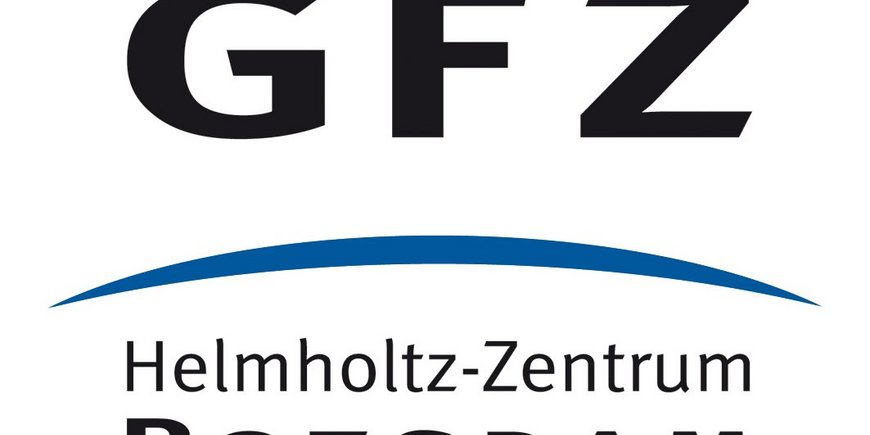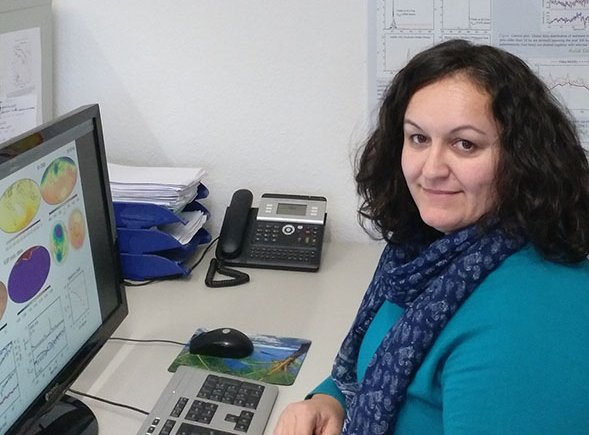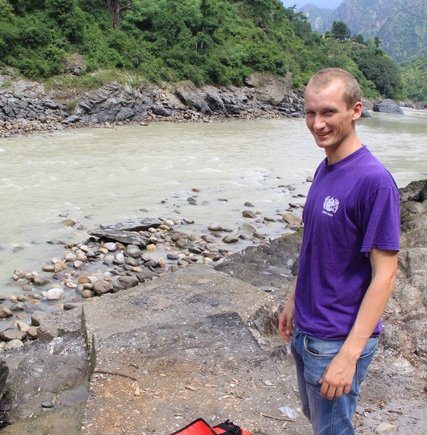Sanja Panovska and Patrick Frings have successfully been awarded as GFZ ‘topic innovation’ fellows.
The GFZ advertised these postdoctoral positions for the first time this year. They are financed by the Topic Innovation Fund (TIF), which is intended to contribute to the development of the research topics within the GFZ. In the future, two positions a year will be awarded to excellent early career scientists with a proven track record in innovative research to work on projects of their own design for a maximum of three years. A project should be interdisciplinary and thus stimulate cooperation between the individual sections of the GFZ.
Sanja Panovska has been working as a junior scientist in GFZ Section Geomagnetism since 2016. In her career to date, she has mainly dealt with changes in the Earth's magnetic field over the last millennia. During her PhD at ETH Zürich and Postdoc at University of California, San Diego, she created global models of the Earth’s magnetic field spanning the past 10,000 to 100,000 years.
In her TIF project, she will look at space climate and changes in Earth's magnetic field and solar activity over the past 100,000 years. Results will help to predict future changes, to identify the possible danger and reduce the risks. In order to achieve the project goals, she will work in the GFZ Section Geomagnetism and collaborate with Sections Magnetospheric Physics, Earth Surface Geochemistry, and Climate Dynamics and Landscape Evolution.
During his PhD in Lund, Sweden, Patrick Frings studied the processing of silicon by natural processes using geochemical tools. After graduation, he received a postdoctoral fellowship from the Swedish Research Council that has brought him to GFZ as a guest researcher since 2016. He works in GFZ section Earth Surface Geochemistry and currently focuses on the development of isotope geochemical tools to investigate weathering processes.
The aim of his TIF project is to develop proxies for microbial activity based on metal isotope geochemistry, in order to address questions related to the deep biosphere, the co-evolution of life and climate or even to astrobiology. To this end, he will cooperate closely with the GFZ Section Geomicrobiology. (mm)










![[Translate to English:] Torsten Sachs in front of a climate station on a field](/fileadmin/_processed_/3/9/csm__TorstenSachs_bearbeitet_GS_4a1365ef84.jpeg)

![[Translate to English:] left image flood at the Ahrtal: image from above, several houses are flooded; left image:: Heidi Kreibich;](/fileadmin/_processed_/4/4/csm_Bild2_9af0130e9f.png)



![[Translate to English:] Start der Vega Rakete](/fileadmin/_processed_/6/4/csm_20231201-kachel_Vega-VV23-launch_ESA-CNES-Arianespace_706716b68c.jpeg)









![[Translate to English:] Poster exhibition at the Brandenburg Hydrogen Day at the GFZ, some participants in the foreground](/fileadmin/_processed_/6/5/csm_Erster_Brandenburgischer_Wasserstofftag_GFZ_402fcec95e.jpeg)
![[Translate to English:] Group picture of the participants](/fileadmin/_processed_/9/4/csm_20231108_CAWa-Workshop-Tashkent_Gruppenbild_99ea779d8a.jpeg)

![[Translate to English:] [Translate to English:] Hörsaal](/fileadmin/_processed_/e/6/csm_H%C3%B6rsal_e21ac645fb.jpeg)


![[Translate to English:] The Delegations in the Historic Library on the Telegrafenberg. In the back there are from left to right, the Dutch Ambassador for Germany, Ronald van Roeden, the Dutch Minister for Education, Culture and Science, Robbert Dijkgraaf and the scientific director of the GFZ, Susanne Buiter.](/fileadmin/_processed_/d/b/csm_Kachel-2_9eba4b4212.jpeg)

